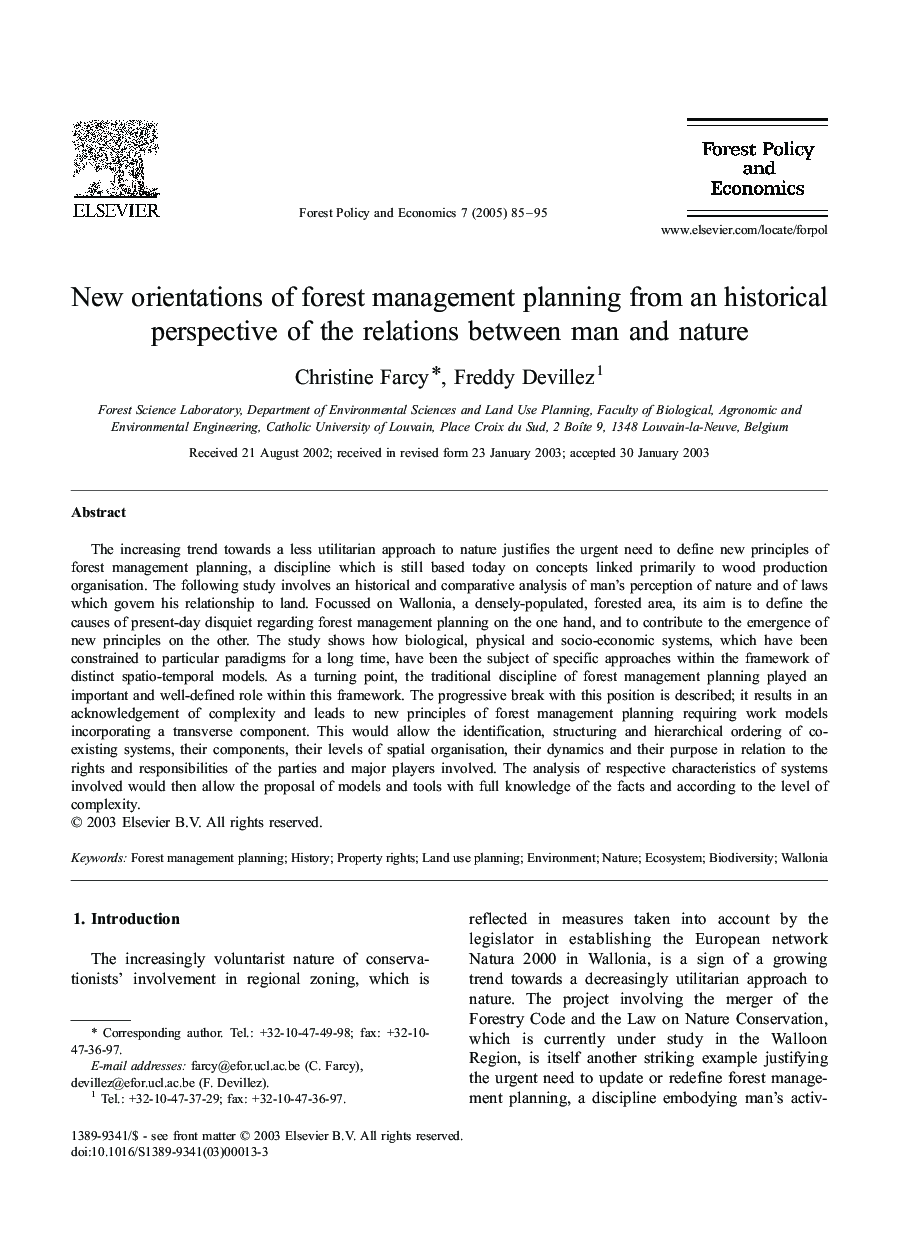| Article ID | Journal | Published Year | Pages | File Type |
|---|---|---|---|---|
| 10251090 | Forest Policy and Economics | 2005 | 11 Pages |
Abstract
The increasing trend towards a less utilitarian approach to nature justifies the urgent need to define new principles of forest management planning, a discipline which is still based today on concepts linked primarily to wood production organisation. The following study involves an historical and comparative analysis of man's perception of nature and of laws which govern his relationship to land. Focussed on Wallonia, a densely-populated, forested area, its aim is to define the causes of present-day disquiet regarding forest management planning on the one hand, and to contribute to the emergence of new principles on the other. The study shows how biological, physical and socio-economic systems, which have been constrained to particular paradigms for a long time, have been the subject of specific approaches within the framework of distinct spatio-temporal models. As a turning point, the traditional discipline of forest management planning played an important and well-defined role within this framework. The progressive break with this position is described; it results in an acknowledgement of complexity and leads to new principles of forest management planning requiring work models incorporating a transverse component. This would allow the identification, structuring and hierarchical ordering of co-existing systems, their components, their levels of spatial organisation, their dynamics and their purpose in relation to the rights and responsibilities of the parties and major players involved. The analysis of respective characteristics of systems involved would then allow the proposal of models and tools with full knowledge of the facts and according to the level of complexity.
Keywords
Related Topics
Life Sciences
Agricultural and Biological Sciences
Forestry
Authors
Christine Farcy, Freddy Devillez,
